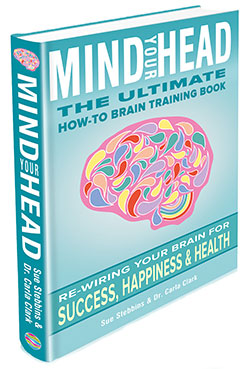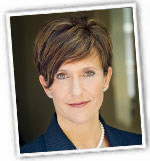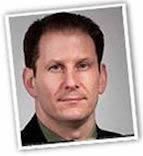Heidegger's Interpretation of Kant: Categories, Imagination, and Temporality
(MARTIN WEATHERSTON)
Reviewed by Robert Hanna
Page 1
Source: http://ndpr.nd.edu/review.cfm?id=1346
In Heidegger’s Interpretation of Kant, Martin Weatherston closely and critically examines Heidegger’s Phenomenological Interpretation of Kant’s Critique of Pure Reason--recently translated from vol. 25 of Heidegger’s Gesamtausgabe--in order to correct the somewhat one-sided impression we may get from Heidegger’s notoriously tendentious reading of Kant in Kant and the Problem of Metaphysics (also known as “the Kantbuch”). Weatherston’s interesting study is in effect a prolegomenon to the deeper and more difficult project of comparing, contrasting, and evaluating Kant’s transcendental idealism in the first Critique and Heidegger’s existential phenomenology in Being and Time.
It is well known that in the Kantbuch, Heidegger strongly emphasizes Kant’s theory of the imagination and makes the controversial claim that for Kant the cognitive capacity of imagination is the “common root” of the capacity of understanding (the faculty of concepts) and the capacity of sensibility (the faculty of intuitions). In fact Heidegger even more controversially claims that the representational spontaneity of productive imagination is at bottom identical to the volitional spontaneity of practical freedom. And most controversially of all, Heidegger also claims that Kant’s transcendental theory of the imagination anticipates but still falls short of his own existential-phenomenological theory of “temporality” (roughly, human intentional agency) and “freedom” (roughly, decisive personal commitment with a view to achieving “authenticity,” or psychological coherence and personal integrity over an entire finite human life). These bold interpretive assertions have frequently drawn the accusation that Heidegger unfairly distorts and even does “violence” to both the letter and the spirit of the Kantian texts.
Weatherston quite rightly does not try to deny that Heidegger’s reading of Kant is tendentious: it is tendentious. What he does instead, by getting deeply into the Phenomenological Interpretation-- the text of a lecture course from 1927-28--is painstakingly to reconstruct the philosophical rationale behind Heidegger’s reading of Kant by showing how it prefigures and rehearses the central themes of Being and Time, which was published in 1929. To understand all is to forgive all. In fact, Heidegger was only doing what every first-rate post-Kantian Austro-German philosopher in the early 20th century had to do or else become a mere Kant scholar or a neo-Kantian: somehow claw his way out of Kant’s system and find his own philosophical place in the sun. Frege did this in the 1870s and 80s by writing the Foundations of Arithmetic, the Begriffsschrift, and Basic Laws of Arithmetic and by undertaking to reduce arithmetic to pure logic, thus refuting part of Kant’s thesis that mathematics is non-logically necessary because it presupposes the pure intuitions of space and time. Wittgenstein did it in 1919 in the Tractatus Logico-Philosophicus by latching onto the elementary and non-paradoxical part of Frege-Russell logic and by substituting that for Kant’s theory of intuition. Carnap did it in 1934 in the Logische Syntax der Sprache by latching onto Tarski's brilliant semantic and meta-linguistic triage for Gödel incompleteness and the Liar Paradox, together with what was left of Frege-Russell logic, and by substituting higher-order function theory (the theory of types) for Kant’s theory of intuition. And Heidegger did it in 1927-28 in thePhenomenological Interpretation by engaging in a direct “dialogue” with Kant in which Heidegger got to do all the talking, by substituting a radically realist, externalist, noncognitive, and pragmatic version of the Brentano-Husserl concept of intentionality (which Heidegger generally labels “care”) for Kant’s theory of intuition, and by adding the existential-phenomenological theory of temporality and freedom. If this is philosophical “violence,” then thank god for philosophical violence, and to the devil with good Kant scholarship! It is however instructively ironic and grist for the sociology of philosophy that if anyone less brilliant than the Heidegger of Being and Time had writtenPhenomenological Interpretation or for that matter the Kantbuch, those two books probably would never have been published.
According to Weatherston, Heidegger’s phenomenological interpretation of Kant has two basic themes--(i) Kant’s logic (both formal and transcendental), and (ii) Kant’s doctrine of the imagination (especially the productive imagination)--both of which Weatherston then traces through Heidegger’s analysis of central topics of the first half of the first Critique: the nature of metaphysics as a science (ch. 1), the Transcendental Aesthetic and the unity of the faculties of understanding and sensibility (ch. 2), transcendental logic and the nature of judgment (ch. 3), the metaphysical deduction and the relation between categories and synthesis (ch. 4), the Transcendental Deduction of the categories (ch. 5), and finally apperception, objectivity, and temporality (ch. 6). Weatherston spells out the basic themes clearly and in much detail; his interpretations of Kant and Heidegger are on the whole accurate, illuminating, and convincing; and his point-by-point critique of Heidegger’s reading of Kant is similarly cogent.
We Make it Easy to Succeed
Successwaves, Intl.
Brain Based Accelerated Success Audios
 |






